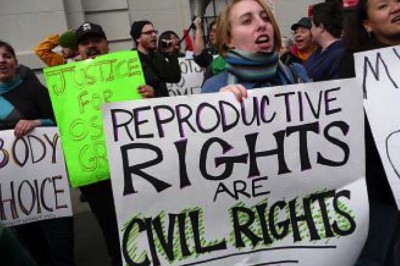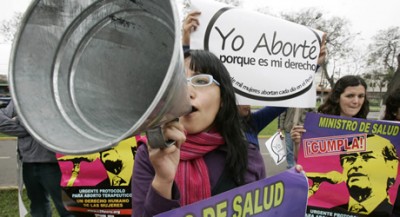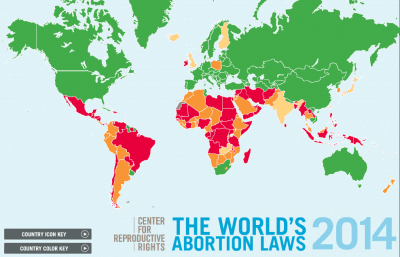
Though it several years for the UN to make the decision and over a decade for Peru to comply, a young woman from Peru is finally being paid reparations for not being allowed to abort her unborn child.
It all started in 2001, when a 17-year-old woman called K.L. was three months pregnant and her unborn child was diagnosed with anencephaly. This birth defect means that the fetus was developing with little to no forebrain and, if carried to term, the baby would certainly die and would risk the mother’s health as well. The doctor that made the diagnosis recommended that K.L. have an abortion since Peru allows abortion when the life of the mother is at risk.
Despite this exception to the otherwise outlawed practice of abortion, the hospital refused to perform the procedure on the grounds that the State did not provide clear regulations for providing the service. The 17-year-old woman was forced to give birth to her child and then breast feed her for the four days that she survived outside of the womb. K.L. described the remainder of her pregnancy as an “extended funeral” and, after seeing the deformities on her baby and knowing she would not live very long, she sank into a deep depression from which it took years to recover.
The Center for Reproductive rights said that the Peruvian hospital illegally denied her right to an abortion and when they learned of the case several months after the baby died in 2002, they took the case to the United Nations Human Rights Council and filed it against the Peruvian government.

It was not until 2005 that the UNHRC declared that Peru, in denying K.L. a legal medical procedure that had a plethora of adverse and long-lasting effects, had violated several articles of the International Covenant on Civil and Political Rights. The violations included the right to an effective remedy, prohibition on torture and cruel, inhuman, and degrading treatment, the right to private life, and the right of minors to measures of protections.
The decision marked the first time that an international human rights committee had ruled that a government body was accountable for not allowing access to legal abortion services, according to the Center for Reproductive Rights. The UNHRC also demanded that Peru pay reparations to the woman to make up for the mental and physical consequences she faced. Peru did not, however, immediately agree to pay the reparations.
Lilian Sepúlveda, one of the original attorneys K.L. v. Peru who brought the case to the UN, said that,
“As groundbreaking as this win was for establishing legal precedent, successes like these do not stand on their own. In order to make a difference for our client and women facing similar situations, concrete implementation of the decision is absolutely essential.”
The implementation that Sepúlveda references began in 2014 in Peru. Almost a decade after the UN made their decision, Peru adopted national guidelines for safe abortion practices and gave clarity to physicians and patients. The country also finally met with the Center for Reproductive Rights to negotiate a reparation agreement for K.L., which was paid in December of 2015.

According to Women on Web, 25% of the world’s population lives where there are highly restrictive abortion laws that essentially make a safe abortion illegal. About 13% of maternal deaths worldwide were caused from unsafe abortion practices. 95% of abortions in Latin America and over 97% of abortions in Africa were unsafe in 2008. It is especially important to consider the legality and morality of abortion right now in Latin America because of the rise of Zika virus, where babies are born with small heads and underdeveloped brains. Though the origins of the virus may be highly controversial, the fact that there has been an increase in babies born with this defect is not and should be considered in the debate.
What do you think of the UN’s decision? Do you believe that women should have the power over their reproductive rights or that it is up to the country to regulate it? Comment your thoughts below and share this article!
This article (The United Nations Has Now Officially Ruled That Abortion Is A Human Right) is free and open source. You have permission to republish this article under a Creative Commons license with attribution to the author and TrueActivist.com


